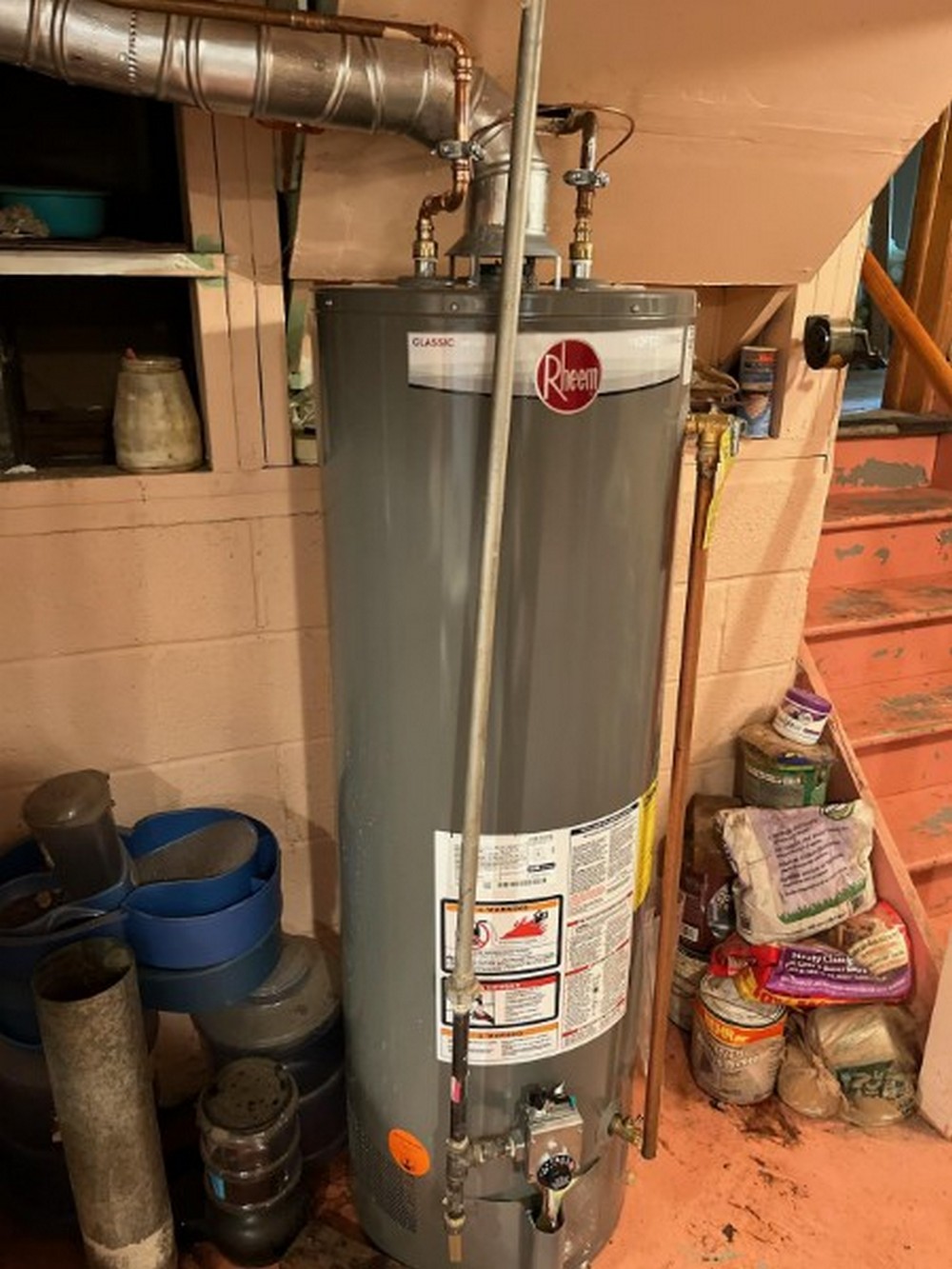Gas Leak Repair by Certified Technicians for Maximum Peace of Mind
Gas Leak Repair by Certified Technicians for Maximum Peace of Mind
Blog Article
Full Guide to Water Heating SystemInstallment and Substitute
Understanding the ins and outs of hot water heater installation and substitute is crucial for property owners looking for to make certain efficiency and dependability in their hot water supply. From choosing the ideal kind and size to carrying out a smooth setup procedure, numerous variables should be thought about to avoid typical risks. This overview will certainly provide you with the required steps and understandings to browse the intricacies of this home enhancement task, while likewise highlighting critical maintenance methods that can extend the life of your system. As you check out these elements, you may find on your own reassessing your current configuration and identifying areas for renovation.
Sorts Of Water Heaters
When taking into consideration hot water heater installation and replacement, it is necessary to understand the numerous sorts of water heaters available in the market. One of the most typical types consist of container hot water heater, tankless hot water heater, heat pump water heating systems, and solar hot water heater.
Tank water heaters are typical systems that keep a specific quantity of hot water, making them readily offered when required. They are usually more economical in advance but might incur greater energy expenses over time as a result of warm loss. On the other hand, tankless water heating systems give warm water as needed, getting rid of the need for storage. They are power efficient and can conserve space, however their first costs are generally higher.
Heat pump water heating systems use electrical energy to transfer warm from the air or ground to heat water, using considerable energy savings but needing even more area and specific setup problems. Solar water heating units harness solar power to warmth water, providing an environmentally friendly choice with prospective long-lasting price savings, although they commonly call for a back-up system for gloomy days.
Recognizing these alternatives makes certain notified choices pertaining to installment and replacement, catering to specific needs and preferences.
Choosing the Right Dimension
Choosing the appropriate dimension for a hot water heater is vital to make sure optimal efficiency and effectiveness. An unit that is too small will certainly have a hard time to meet house needs, causing inconsistent hot water schedule and boosted energy usage. On the other hand, a large water heater can lead to unnecessary power waste and greater utility costs.
To identify the appropriate size, take into consideration the house's height warm water usage. This can be determined based on the number of owners and their common warm water requirements. A family members of four may require a water heating unit with an ability of 50 to 80 gallons, depending on the usage patterns, such as synchronised showers and washing.
Additionally, analyze the recuperation rate, which gauges how promptly a heating unit can replenish warm water after it has actually been made use of. For tankless models, emphasis on the circulation price, determined in gallons per min (GPM), to ensure it satisfies the family's synchronised demand.

Installment Process Review

Following, the old system must be separated and gotten rid of, taking treatment to follow neighborhood codes and guidelines concerning disposal. As soon as the old system is out, the new hot water heater can be placed in position. This action includes attaching the water lines, making sure that all fittings are leak-free and protected.
After developing water connections, it's important to connect the power supply, whether electrical or gas, complying with the manufacturer's instructions meticulously. As soon as all links are made, the system must be full of water, and the power can be transformed back on. It's crucial to check for leakages and make certain the water heating unit is operating properly before completing the setup process.
Typical Installment Errors

An additional regular blunder is ignoring to follow local codes and laws. Stopping working to follow these standards can not just lead to security hazards but might also lead to costly penalties or the need for pricey reinstallation. In addition, improper airing vent is an important issue. Insufficient air flow can create harmful gas build-up, positioning severe health risks.
Incorrect pipes links are additionally a common error. Falling short to safeguard links or using the wrong kind of installations can bring about leaks and water damage. Ignoring the importance of a proper drainpipe frying pan can result in substantial water damages if leakages do occur. Last but not least, poor insulation of pipelines can cause warmth loss, lowering effectiveness. By avoiding these common installment blunders, property owners can ensure their hot water heater runs securely and successfully, making best use of performance and durability.
Maintenance Tips for Longevity
Correct upkeep of a water heating unit is vital this website for its longevity and optimum efficiency. more information Regular evaluations and maintenance can avoid costly fixings and prolong the home appliance's life-span. Begin by examining the temperature level setup; it ought to typically be set between 120 ° F and 140 ° F for ideal power effectiveness and safety and security.
Every 6 months, flush the storage tank to remove debris accumulation, which can harm heating effectiveness and create rust. To do this, switch off the heater, link a hose to the drain shutoff, and allow the water run up until it is clear.
Anode rods need to be evaluated yearly and changed when they are corroded. These rods assist protect against tank rust by attracting destructive components in the water.
In addition, check the pressure safety valve consistently to ensure it is working properly. This shutoff is essential for avoiding excessive pressure build-up within the container.
Finally, take into consideration scheduling an expert upkeep check every couple of years for thorough evaluations and servicing. By adhering to these maintenance tips, house owners can dramatically boost the performance, safety and security, and life-span of their water heaters, making sure trusted warm water for several years ahead.
Verdict
In verdict, appropriate installment and maintenance of water heaters are essential for ensuring performance and durability. By understanding these necessary aspects, home owners can achieve a reputable hot water supply while minimizing prospective problems associated to water heating unit procedure.
Comprehending the details of water heating system installation and substitute is critical for homeowners seeking to guarantee performance and integrity in their hot water supply.Storage tank water heating systems are conventional systems that keep a particular volume of hot water, making them conveniently available when required. In contrast, tankless water heating systems supply warm water on need, getting rid of the need for storage. Choosing a water heating unit that is either also little or too big can lead to ineffectiveness, resulting in poor hot additional reading water supply or excessive power intake.
By understanding these crucial facets, home owners can achieve a trustworthy warm water supply while minimizing potential issues associated to water heating system operation. drain cleaning.
Report this page